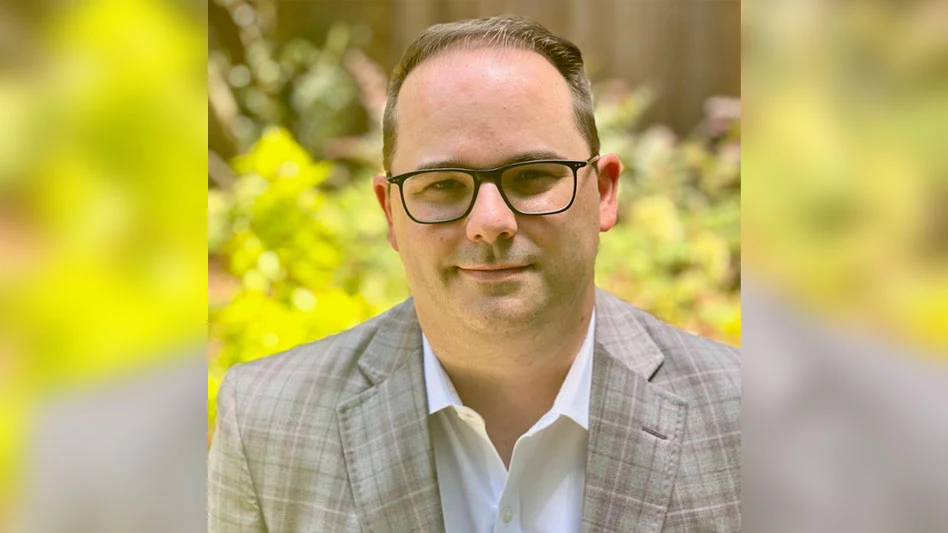New biofuels testing lab opens at North Carolina technical school
The first biofuels testing lab in the Southeast has opened at the Enka, North Carolina, campus of Asheville-Buncombe Technical Community College (A-B Tech).
 Researchers at the lab will provide “convenient, cost-effective testing of biodiesel to assure quality products are going to market,” says Sam Brake of the North Carolina Department of Agriculture Bioenergy Research Initiative, which is located in Oxford, North Carolina.
Researchers at the lab will provide “convenient, cost-effective testing of biodiesel to assure quality products are going to market,” says Sam Brake of the North Carolina Department of Agriculture Bioenergy Research Initiative, which is located in Oxford, North Carolina.
“Consumers will be assured they’re getting high-quality product,” says Brake, who added that the North Carolina Department of Agriculture (NCDA) awarded the project a $150,000 grant. “Long-term, it should help boost demand and production.”
Biofuels are petroleum fuels that include organic material such as vegetable oil or corn.
“Having a lab here decreases the testing turnaround time so it increases biofuel companies’ ability to release batches [of fuel],” says Sarah Schober, senior director of A-B Tech’s BioNetwork, a program throughout the North Carolina community college system that focuses on biotechnology and life sciences.
A-B Tech contributed $60,000 to the biotech project, notes Kathi Petersen, interim director of operations for AdvantageWest, a Fletcher, North Carolina-based nonprofit economic development organization serving western North Carolina.
AdvantageWest managed the $150,000 in NCDA grant funds.
The lab’s opening is the fruition of two years of work that began in part because of the closing of the Biofuels Center of North Carolina in Oxford, which had its funding halted in June 2013. The center offered the initial $150,000 that the NCDA ultimately disbursed.
“Until now, biofuels companies had to send their batches out of state to labs in places like Iowa or Oregon,” Brake says.
 Pilot program targets hard-to-recycle plastics
Pilot program targets hard-to-recycle plastics
A collection of companies recently partnered with a California city on a three-month pilot project to determine the feasibility of effectively collecting difficult-to-recycle plastic products.
The Energy Bag Pilot Program brought together Dow Chemical, the Flexible Packaging Association, Republic Services, Agilyx, Reynolds Consumer Products and the city of Citrus Heights, California, on a project to divert packaging products such as juice pouches, candy wrappers and plastic dinnerware to a plastics-to-fuel facility where they could be converted into synthetic crude oil.
During the pilot program, which ran from June to August 2014, about 26,000 households in Citrus Heights were provided with purple bags, which the partners called Energy Bags. Residents were asked to collect plastic items not currently eligible for the city’s mechanical recycling. The bags were collected during the community’s regular biweekly recycling program, sorted at the recycling facility and the plastics in the energy bags were shipped to Agilyx’s plastics-to-energy plant in Oregon, where the scrap plastics were converted into a fuel product.
Agilyx ultimately was pleased with the quality of the material received through the program, according to a Dow representative. The company’s thermal pyrolysis technology allowed the company to convert the collected plastics into synthetic crude oil.
“We were extremely excited to work with all the partners involved on this first-of-its-kind pilot in the U.S.,” says Greg Jozwiak, North American commercial vice president, Dow Packaging and Specialty Plastics. “Through the power of this collaboration, we gained significant knowledge regarding an alternative method that complements plastics recycling and shows that nonrecycled plastic waste can be diverted from landfills, extracted for its embedded energy and put to good use.”
Six collections were held during the three-month program. Results included:
- Nearly 8,000 purple Energy Bags were collected.
- About 6,000 pounds of typically nonrecycled items were diverted from landfills.
- The conversion produced 512 gallons of synthetic crude oil.
- A 30 percent citizen participation rate was achieved.
“We were very proud to be the first community in America to participate in the Energy Bag initiative,” says Citrus Heights Mayor Sue Frost. “The program demonstrated how communities nationwide can benefit by diverting typically nonrecycled plastics from landfills and give them new life as an energy resource.”
“This pilot proved that resource recovery of nonrecycled plastics is a viable municipal process,” says Jeff Wooster of Dow Packaging and Specialty Plastics.
To view the report visit http://bit.ly/1EB7Cg5.

Explore the April 2015 Issue
Check out more from this issue and find your next story to read.
Latest from Waste Today
- Cards renews municipal contract with Harrah, Oklahoma
- Waste Pro hires all-star athlete
- C&D World session preview: Key strategies for effective fleet maintenance
- ReMA supports policy measures facilitating collection, safety and proper end-of-life management of small, medium batteries
- Veolia assumes operations at Canadian WTE facility
- Resynergi, Lummus Technology launch modular plastic recycling solution
- New Hampshire House committee advances amended landfill moratorium bill
- Viably teams with Turmec on materials processing systems





